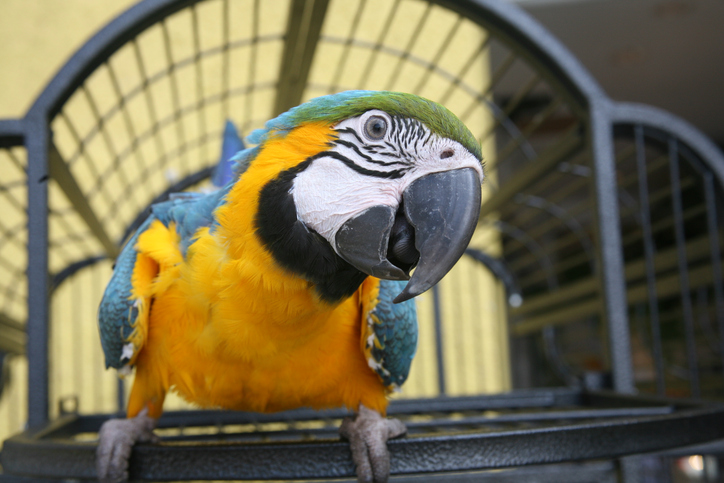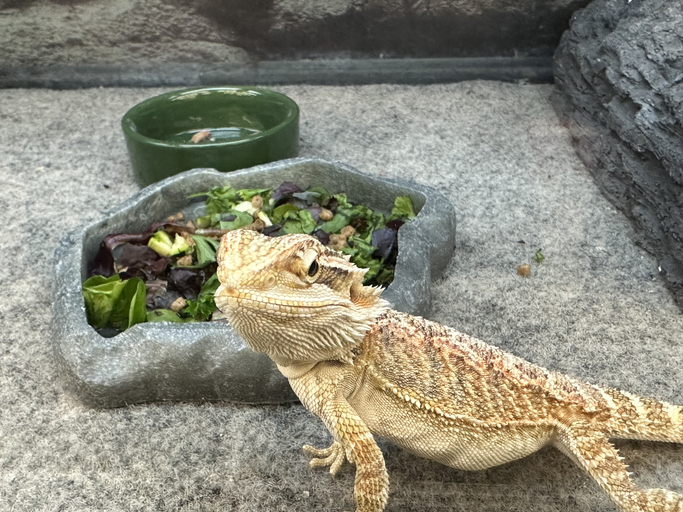9 Benefits of Owning an Exotic Pet in Davenport, IA
Could you cozy up to a tarantula or a Giant African land snail? These unusual creatures look intimidating, but exotic pets offer many benefits and owning one can be a rewarding experience for most people. Here are 9 benefits to owning an exotic pet that might surprise you and might encourage you to own one of these pets yourself!
Looking for an exotic vet in Davenport, IA? Call Animal Family Veterinary Care Center at (563) 391-9522.
What are the Most Popular Exotic Pets?
There is a long list of exotic creatures you can own as a pet, but some of the most popular include:
- Toucans
- Parrots
- Cockatiels
- Madagascar hissing cockroaches
- Scorpions
- Tarantulas
- Anoles
- Box turtles
- Bearded dragons
- Pythons
- Chinchillas
- Heehogs
- Giant African land snails

What are the 10 Benefits of Owning an Exotic Pet?
- More economical to buy and feed
Exotic pets are more affordable than most dogs. For instance, the start-up cost for a Macaw Parrot is $750, including the cost of the small parrot, cage, food, and toys. A chameleon start-up is less than $200. So, depending on which creature you choose, the amount you have to pay will vary depending on the housing and food they require.
- Fun to watch
Exotic pets are really fun to watch. They move in interesting ways and the way they eat is cool. They’re so different from most domestic pets, which makes them fascinating to watch! Your family, friends, and neighbors will all want to come over to “ooh and ah” over your new exotic friend.
- Safe
When you tell your friends about your pet, they may assume you have a dangerous animal, which is not true. Exotic pets, like all pets, have their boundaries. In situations with exotic creatures, you might get hurt if you handle them wrong. But the same can be said about a dog or a cat. A cute gecko or bearded dragon may look scary, but they’re safe household pets.
- Won’t affect people with allergies
Many people struggle with pet allergies. They’re usually allergic to the fur or dander of dogs or cats. Most exotic pets don’t have fur or hair. And it’s rare for someone to have an allergic reaction to a reptile or amphibian. If you suffer from allergies, these may be the perfect pets.
- Don’t need much attention
Cats and dogs need a lot of your time and attention and you form a close bond with them. Amphibians and reptiles don’t need you in the same way. They’ll be happy if you feed them and keep their habitat clean for them.
- Won’t mess up your furniture
No need to worry about your exotic iguana chewing on your sofa or leaving slimy fur balls under your kitchen table. Exotic pets live happily in their habitats, such as a cage, aquarium, or backyard.
7. Helps lower stress
Being around a pet lowers your stress levels. Interacting with your pet lowers your blood pressure and cortisol levels or stress hormones. Besides these health benefits, pets boost your mood, so you feel less lonely. It’s suggested that a certain type of pet isn’t what lowers your stress but the strength of the bond you have with your pet. So, if you have a bond with a pet snake, you will feel more relaxed when holding it.
8. Don’t need a lot of space
An exotic pet doesn’t need as much space as a dog or a cat. They’re usually happy in an aquarium or terrarium. You can even keep your exotic pet in your backyard. They don’t need to be walked or even played with. Many exotic creatures are happy being left alone as long as they are well taken care of.
9. Illegal to own
You might have heard it’s not legal to own an exotic pet but it depends on where you live. Some states do forbid owning a specific exotic pet. The most commonly banned pets in certain states include:
- Porcupines
- Cottontail rabbits
- Wolves
- Skunks
- Sugar gliders
- Pet monkeys
- Various types of snakes
- Certain birds
Not to worry, you still have a long list of exotic creatures you can own. Check your state’s laws before buying a pet.

What Does your Exotic Pet Need?
The Right Kind of House
Your exotic creature’s home should mimic its natural habitat. Think about the size of the home your pet will need when they grow. Does it need a special dish for water? Should their habitat include plants? A separate enclosure? Before purchasing your pet, please do your research so it feels comfortable and safe.
A Good Veterinarian
Not all vets specialize in exotic pets. Look for a vet with experience caring for exotic creatures’ needs. Be sure to give your pet regular vet visits, so they stay healthy.
Good Nutrition
Every pet has nutritional needs. Giving your pet human foods is typically not good, except for fresh veggies, fruits, or cooked meats. Your exotic creature will also need daily fresh water.
What about Illness?
When exotic pets get sick, knowing if they’re in pain can be difficult. Their instinct is to hide the pain to protect themselves from predators who prey on sick or weak animals. Watch your pet’s behavior for signs of illness, such as:
- Lame or limping
- Swelling
- Bubbles from the nose or mouth
- Gaining or losing weight
- Discharge from the ears, mouth, eyes, or nose
- Agitation
- Change in activities like not swimming or sleeping too much
- Breathing heavily
- Feces changes
- Loss of appetite
- Slumped down, not able to stand up tall
Conclusion
Owning an exotic pet can be a fun, beneficial, and learning experience for anyone. While exotic pets can be a fun pet to own, you must make sure you care for it as you need to and make sure it has the proper housing and food for it to live a healthy and happy life.
If you have any questions or would like to schedule an appointment for your exotic pet, call us at (563) 391-9522! Here at Animal Family Veterinary Care, we are ready to help you and your pet with whatever your needs may be!
Recent Posts
About Us
Animal Family Veterinary Care offers an extensive range of services all in one place, so we can meet your pet’s needs in almost every situation. Our veterinarians in Davenport treat dogs and cats because every pet is unique and important.